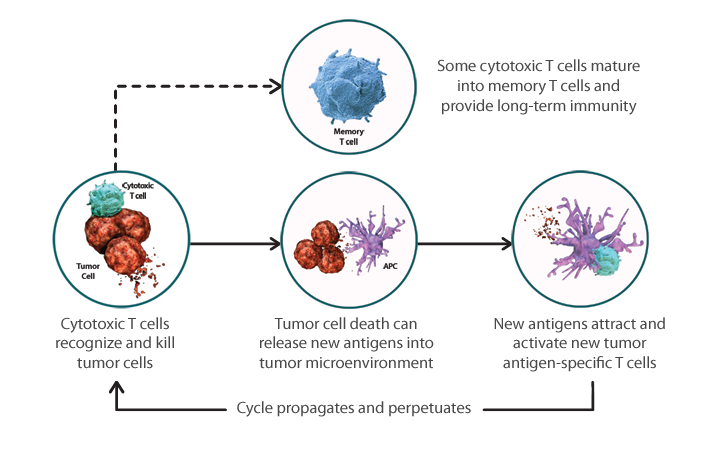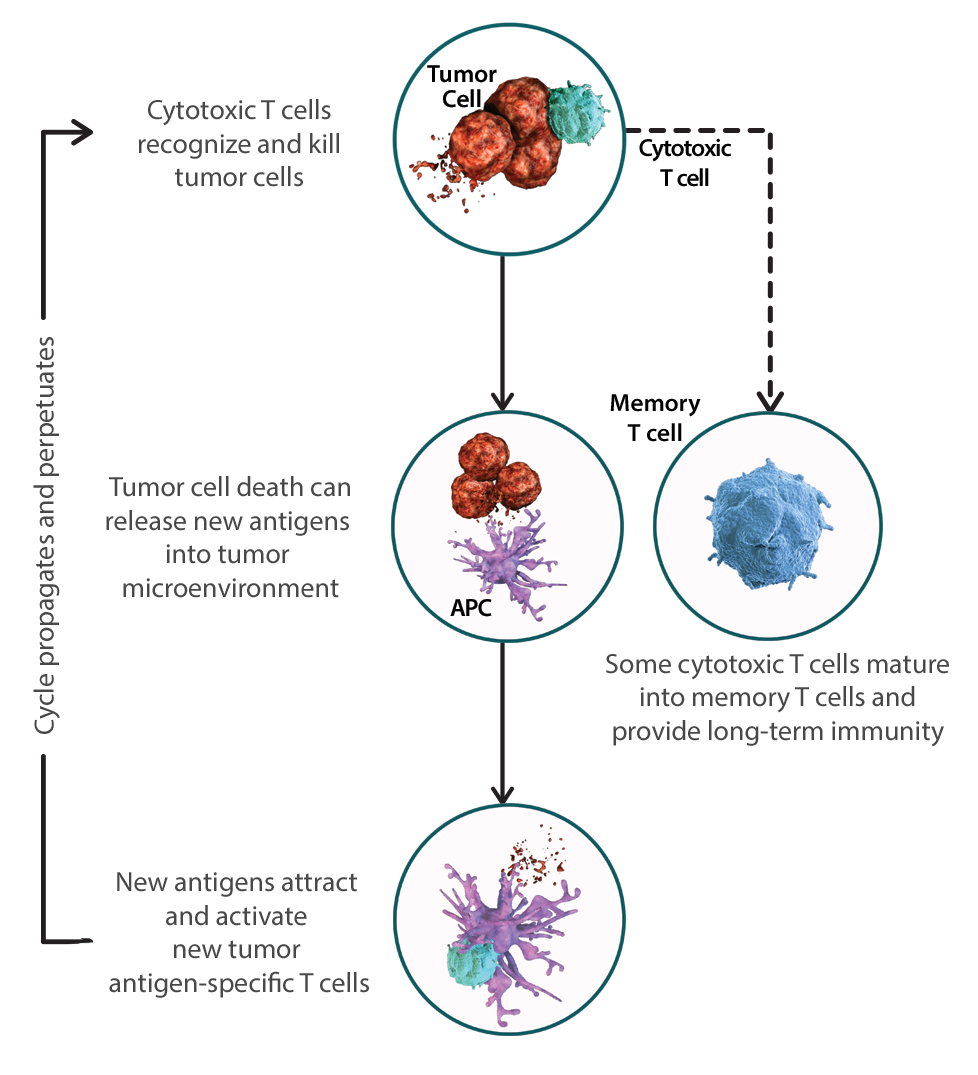Immune Responses Can Deepen and Sustain Over Time
The immune response to cancer can deepen and sustain over time
The immune response evolves and expands over time by constantly recognizing and remembering tumor antigens. This ability—to propagate and perpetuate—suggests the intelligent nature of the immune response.1
The effects of immune activation are not static; instead, they improve and deepen over time.2 The release of new antigens following tumor cell death fuels the cycle, as new tumor-specific T cells are continuously recruited to kill tumor cells.1-4 Over time, as the cycle is repeated, the antitumor immune response continues to broaden.2


As the immune response continues to expand, some cytotoxic T cells mature into memory T cells that may provide long-term immune protection, even if the original stimulus is no longer present.5,6
References
1. Chen DS, Mellman I. Oncology Meets Immunology: The Cancer-Immunity Cycle. Immunity. 2013;39:1-10. 2. Markiewicz MA, Fallarino F, Ashikari A, Gajewski TF. Epitope spreading upon P815 tumor rejection triggered by vaccination with the single class I MHC-restricted peptide P1A. Int Immunol. 2001;13(5):625-632. 3. el-Shami K, Tirosh B, Bar-Haîm E, et al. MHC class I-restricted epitope spreading in the context of tumor rejection following vaccination with a single immunodominant CTL epitope. Eur J Immunol. 1999;29(10):3295-3301. 4. Moon JJ, Chu HH, Pepper M, et al. Naive CD4+ T Cell Frequency Varies for Different Epitopes and Predicts Repertoire Diversity and Response Magnitude. Immunity. 2007;27:203-213. 5. Kaech SM, Wherry EJ, Ahmed R, et al. Effector and Memory T-Cell Differentiation: Implications for Vaccine Development. Nat Rev Immunol. 2002;2:251-262. 6. Lau LL, Jamieson BD, Somasundaram T, Ahmed R. Cytotoxic T-cell memory without antigen. Nature. 1994;369(6482):648-652.

